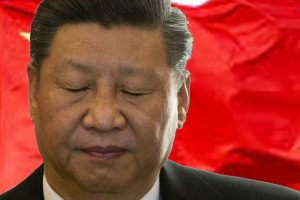India’s decision to include Gilgit-Baltistan, under Pakistan occupation, is a pre-emptive move directed more at China than Pakistan, Beijing’s “colonial vassal”.

China did get the message delivered and the violent clash along Naku La border
in Sikkim is a reflection of it. It also an old Chinese ploy of tactically reducing India’s psychological gain and divert the Indian attention to other frontiers.
Facing global isolation leading to an alliance against it due to Covid 19, China was in any case widely expected to bother India by escalating tensions along both eastern and western frontiers. Shelling from the Pakistani side along the Line of Control and efforts to infiltrate terrorists recently, only confirmed these apprehension.
The Indian decision to include Gilgit–Baltistan along with Muzaffarabad in its weather bulletins has taken everyone by surprise. It has given India a tactical upper hand. It may seem to be a small measure but has already ruffled feathers in both Beijing and Islamabad.
Inclusion of predominantly Shia Gilgit-Baltistan into its meteorological subdivision has touched a raw nerve. It has hit China where it hurts the most. Due to the absence of a locus standus, it cannot express its ire but only squirm in pain.

Under the present regime, India has maintained an aggressive stand on geo-strategic matters. The ‘all weather friends” were already finding it difficult to manage with the new realities ushered by the revocation of Article 370 and Article 35 A.
This was on display recently when angered by the Pakistan Supreme Court decision allowing the amendment to the Government of Gilgit-Baltistan Order of 2018, to conduct elections there, India issued a strong demarche.
Therefore, this new development has forced the two countries to rethink their strategie given the economic and military importance of Golgit-Baltistan region.
It is contextual to note that Pakistan government recently came under attack from its own Human Rights Commission for subjugation of Gilgit Baltistan. In its latest report, HRCP has turned the Pakistani argument on Jammu and Kashmir on its head. It says Islamabad’s stand “appears odd, because Pakistan itself has not granted special status to one of its components Gilgit Baltistan.”

The Imran Khan-led dispensation has tried its best not to spread this new from spreading to prevent acute embarrassment for itself.
The human rights violations in the region increased after the outbreak of Covid 19. Making Covid 19 preventive measures an excuse, Pakistan has taken the opportunity to deepen its military grip on the area and its people.
Flouting all norms, Pakistan gave away more than 5000 sq km of the area (in the interim) to China through the 1963 Sino-Pakistan Agreement.
It is significant to note that Pakistan’s occupation of the area itself is illegal, China gaining control over it against local opposition, is a case of illegality compounded.
The region is of great geo-strategic importance as it is not only the meeting point of China, Pakistan and Iran but opens the pathway to mineral rich Afghanistan and Central Asian countries besides west Asia.
The Gilgit Baltistan fits in the Chinese scheme for they have long nurtured the ambition to become a force in the Indian Ocean and legitimize its ‘big power’ role by establishing permanent military bases along the coastline offered on a platter by Pakistani. CPEC in Gilgit Baltistan provide the link to these bases and the Chinese mainland.
China, through CPEC, has created a web of road and rail infrastructure in Gilgit-Baltistan involving multi billion dollar investments.
This Chinese design poses a threat to India not only in the Indian Ocean region through its naval bases in Balochistan but also to its oil & gas and other commercial activity through the route due to Chinese army’s presence there.
Very few nations in the world have traded their sovereignty as Pakistan. It seems China has now almost complete control over Pakistan’s decision making.
The last minute decision to not order a probe into scams by power companies is just one example of Beijing’s stranglehold over Islamabad. The vice like grip is so strong that not only Pakistan cannot take any decision not in line with the communist country at international fora, it cannot even take its internal executive decisions without the approval from China.
The IMD decision will have local implications too. People of Gilgit Baltistan have protested Pakistani occupation and the idea of shared sovereignty, a euphemism for sell out to China, has also been vehemently opposed.

The Pakistan government has been working on changing the demography of the Shina majority Gilgit Baltistan. The locals are already a minority in their capital Gilgit.
It is unlikely that Iran too will remain silent for a very long time as the locals regard the Iranian religious heads in high esteem. Tehran has even helped with building local infrastructure and providing education to the youth at its universities.
US expressed concern in the past over lack of transparency, as many firms blacklisted by the World Bank have secured CPEC-related contracts.
The shift in India’s diplomatic strategy, from being defensive on PoK to playing on the front foot, has led to renewed focus on the region, its illegal occupation, demographic engineering to undermine the shia natives, sellout to China and the latter’s unbridled development spree at the cost of the sensitive ecology of the region that provides for over fifty per cent of Pakistan’s water needs. The presence of the Chinese military can no longer go unnoticed.
This may begin the emergence of a new pattern in the geo-politics of South Asia.



